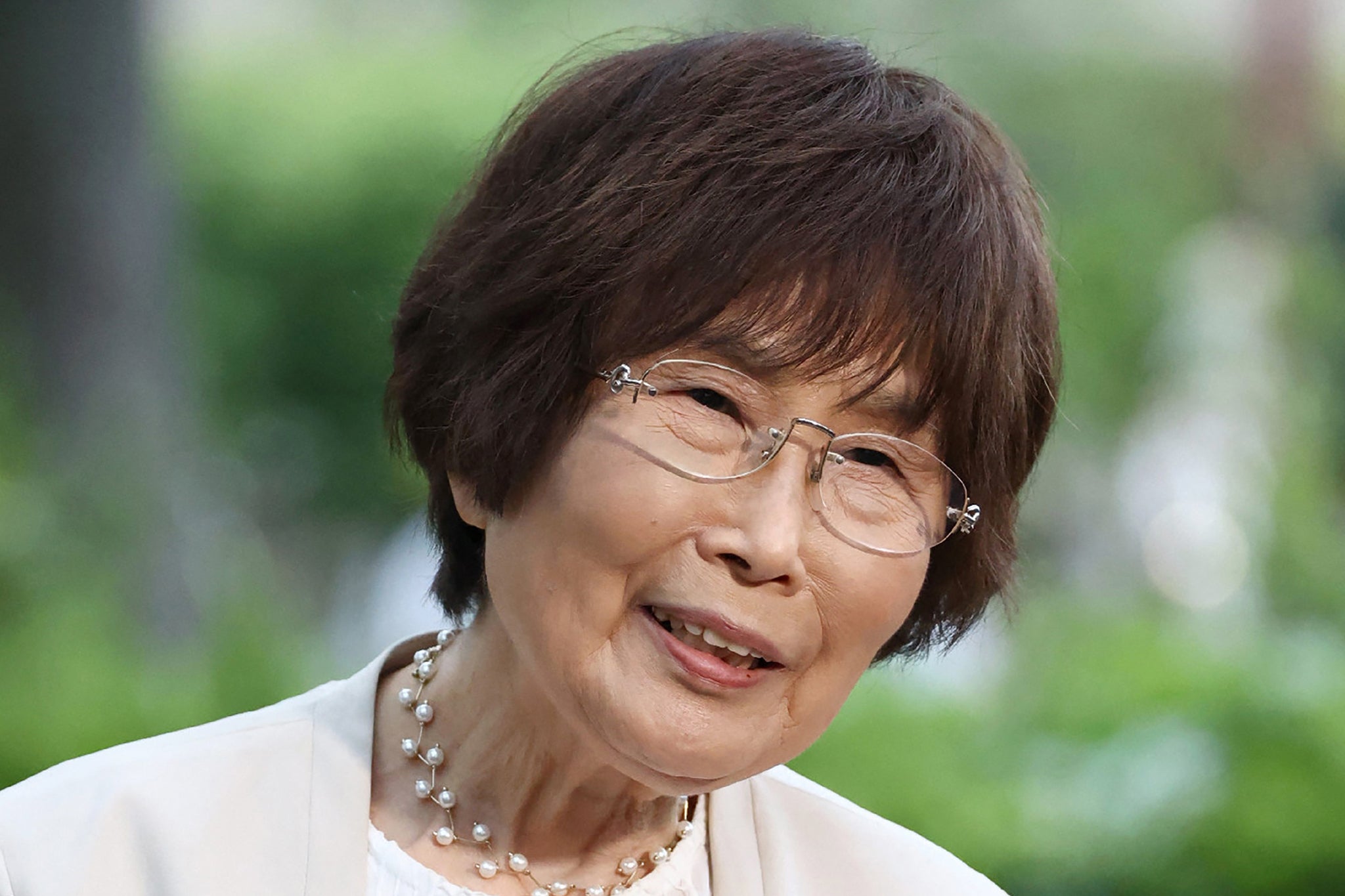The mayor of Hiroshima called on world leaders to “please visit” the Japanese city and witness the reality of using nuclear weapons as he condemned the race by countries to possess such destructive arsenal.
To mark 80 years since the US detonated the first wartime nuclear bomb on the Japanese city in 1945, residents, survivors and representatives from 120 countries observed a moment of silence at 8.15am at the Hiroshima Peace Memorial Park.
Addressing the gathering, which included representatives of nuclear weapons states like the US and Israel, the mayor, Kazumi Matsui, warned the ongoing conflicts in eastern Europe and the Middle East had contributed to a global trend towards a nuclear military buildup.
“These developments flagrantly disregard the lessons the international community should have learned from the tragedies of history,” Mr Matsui said in his peace declaration.
"Among the world's political leaders, there’s a growing belief that possessing nuclear weapons is unavoidable in order to protect their own countries," he added, noting that the US and Russia alone possessed 90 per cent of the world's nuclear warheads.
"This situation not only nullifies the lessons the international community has learned from the tragic history of the past but also seriously undermines the frameworks that’ve been built for peace building,” he said, speaking beside the Atomic Bomb Dome, a preserved ruin of one of the few buildings left standing after the bombing.
"To all the leaders around the world: please visit Hiroshima and witness for yourselves the reality of the atomic bombing.”

The annual Hiroshima Day commemorates one of the most devastating moments in human history: the atomic bombing of the city during the final days of World War II.
On the morning of 6 August 1945, a US B-29 bomber called Enola Gay dropped a uranium-based atomic bomb, nicknamed “Little Boy”, to detonate about 600m above the city.
The explosion unleashed a ferocious blast, scorching heat, and lethal radioactive radiation, instantly killing 70,000 to 80,000 people.
Three days later, the US dropped a second bomb, called “Fat Man,” over Nagasaki. These bombings marked the first and only use of nuclear weapons in war and led to Japan’s surrender on 15 August 1945, bringing the war to an end.
The atomic bombings killed more than 210,000 people in total.
In his declaration, Mr Matsui spoke about a woman who begged for water as fire raged through Hiroshima after the bomb was dropped.
“Decades later, a woman who heard that plea still regretted not giving the young woman water,” he said. “She told herself that fighting for the elimination of nuclear weapons was the best she could do for those who died.”
He urged the younger generation to recognise that the acceptance of nuclear deterrence could cause “utterly inhumane” consequences for their future. “They threaten to topple the peace-building frameworks so many have worked so hard to construct,” he said.

Yoshikazu Horie, a 71-year-old tourist who attended the ceremony, said he felt scared to see that history was repeating itself.
"It feels more and more like history is repeating itself. Terrible things are happening in Europe,” he said. “Even in Japan, in Asia, it's going the same way, it's very scary.”
"I've got grandchildren, and I want peace so they can live their lives happily."
After laying a wreath at the cenotaph, prime minister Shigeru Ishiba said that Japan, as the only country to have suffered atomic attacks, had a “mission” to lead global disarmament efforts.
In a statement, UN secretary general António Guterres warned that “the very weapons that brought such devastation to Hiroshima and Nagasaki are once again being treated as tools of coercion”.
‘Children like me had to carry bodies’: Hiroshima survivors urge world not to forget
How one fearless American journalist exposed the truth about Hiroshima
The hunt for Hiroshima victims 80 years after atomic bombing
Nepal is a tea-loving country. Coffee could change that
Japan wins £4.9bn deal to build Australian warships
Japan’s oldest person, aged 114, reveals the ‘greatest asset’ of her long life







